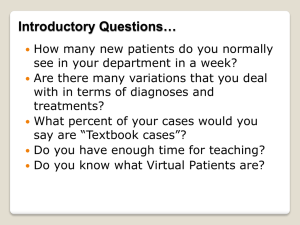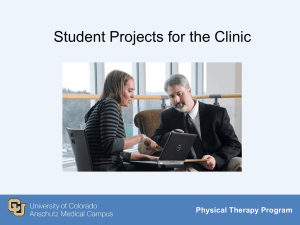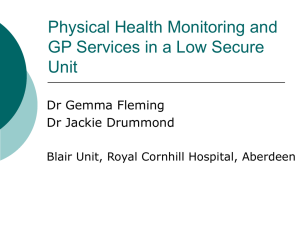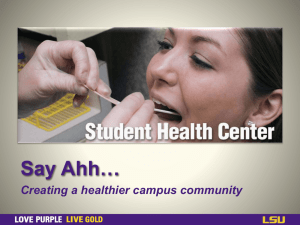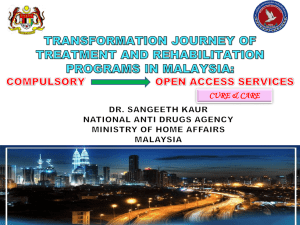Patrick Cahill
advertisement
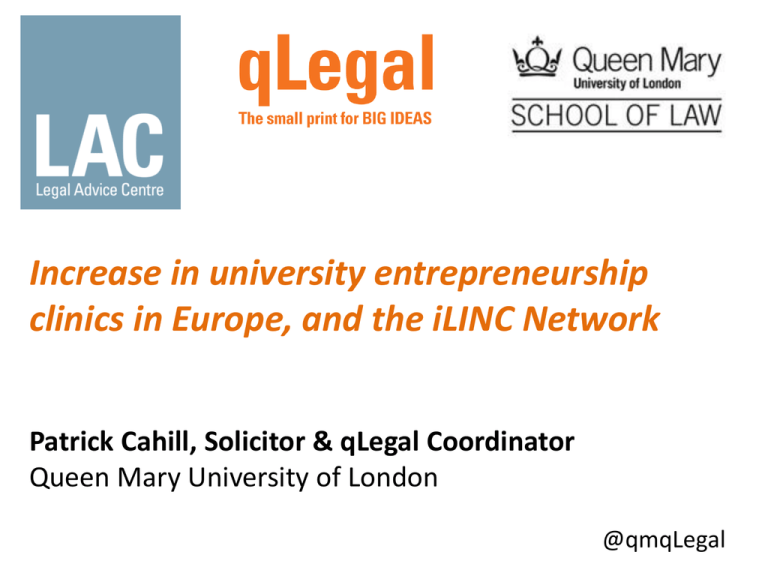
Increase in university entrepreneurship clinics in Europe, and the iLINC Network Patrick Cahill, Solicitor & qLegal Coordinator Queen Mary University of London @qmqLegal What we’ll cover 1. 2. 3. 4. 5. 6. London, UK and Europe as a Tech Hub: Emergence of new clients Advising businesses and entrepreneurs Postgraduate students and links to learning Responding to need: • qLegal Clinic at Queen Mary University of London • Business Clinic at Northumbria University • Alexander Von Humbolt Startup Clinic, Berlin, Germany iLINC – Moving towards a European Network of law ‘incubators’ @qmqLegal Thoughts, conclusions and Q&A 1. London, the UK and Europe as a Tech Hub: Emergence of new clients in the community (East) London • 3,000 technology companies which employ an estimated 50,000 people and growing UK • 600,000 more microbusinesses in existence than in 2008 • 183,000 more people that defined themselves as selfemployed in the first quarter of 2014 • 2013, number of people in early stages of an entrepreneurial venture rose to its highest level for more than a decade Europe: • Feb 2014, 25.920million people in the EU-28 unemployed @qmqLegal 2. Advising businesses and entrepreneurs (1) • Youth unemployment- current group of unemployed young people described as a ‘lost generation’ (ILO,2010) • Viable career option, rather than an alternative • Work satisfaction, freedom and flexibility • Working around physical health conditions, caring for older relatives (see RSA, 2014) • Job security Legal advice is a barrier to entry for • Government support and encouragement entrepreneurs and an issue for established entrepreneurs • Community growth and development “[a]nother important factor enhancing recent interest in entrepreneurship is the growing realisation of the significance of new businesses in a society increasingly concerned with the problem of unemployment” (Cassis and Minoglou, 2005) @qmqLegal 2. Advising businesses and entrepreneurs (2) • Universities- transference of knowledge • Public engagement • Assisting the local community • As clinic teachers, professors, lecturers we impart and develop knowledge • Facilitators • Entrepreneurship and business clinics should supplement theoretical student learning • Student choice, discovery and development @qmqLegal 3. Students and links to learning (1) • In the UK and Europe programmes which supplement clinics are to a large extent specifically focussed on commercial law covering intellectual property law, data protection, corporate transactional law or other commercially focussed pathways • Student interest, experience and future career plans • Training: • Students as enablers- ‘how to do’ not ‘what not to do’ • Commercial legal and non-legal skills- where will the business be in 5 years? • Law is developing fast in this area (e.g. Crypto currency and CogniCor) • Clients are entrepreneurial, visionaries and understand their business • Emotional client relationships. Risk of failure, fear of debt, economic climate are all issues raised (Closing the Generational Start-up Gap) @qmqLegal 3. Students and links to learning (2) • Training: • Students in alternative non-legal career options • Students thinking as entrepreneurs, problem-solvers and as a disruptive force (e.g. Research and policy) • Networking, presentation, interviewing, research and negotiation skills • Importance of multi-disciplinary teamwork with other professions. The law does not function in a vacuum • Marketing: client recruitment and scoping “Students grow as lawyers and learn to practice” (Shefner et al, 2014) @qmqLegal 4. Responding to the need. Three examples: (1) qLegal Clinic at Queen Mary University of London, UK • Clients must fall within a financial threshold or identify as a start-up (generally are self-selecting) • Students provide advice to tech start-ups and entrepreneurs • Students undertake workshops, drafting of toolkits (information for the website) and advice • Typical client enquiries: • IP registration (patent/trademark) • Terms and conditions, privacy policies • Regulatory advice @qmqLegal • Not assessed 4. Responding to the need. Three examples: (2) Business Clinic at Northumbria University, Newcastle, UK • Students divided into “law firms” which assist businesses, charities and social enterprises regardless of their size or financial means through workshops and advice • Typical projects: • registering a trademark • drafting website terms and conditions • drafting company registration documents and advising on directors’ duties • Clinic is assessed @qmqLegal 4. Responding to the need. Three examples: (3) Alexander Von Humbolt Startup Clinic, Berlin, Germany • Students are PhD candidates in law, business, sales, management or finance • Clinic offers services through online videos, templates, workshops and clinic sessions • When a client attends and needs further advice, they are referred to a ‘clinic expert session with professional consultants • The clinic data forms part of the PhD students’ research • There is no criteria for client selection @qmqLegal 5. iLINC – Moving towards a European Network of law ‘incubators’ • 4 partner universities – Queen Mary, Amsterdam, Leuven & Hamburg • Associate Partner: Brooklyn Law Incubator and Policy Clinic • 12 active network partners – From Oslo to Nicosia & Cork to Pécs • Global development @qmqLegal 5. iLINC – My research: Service Delivery Models • Service Delivery Model 1- Single client advice – Single client with bespoke legal advice • Service Delivery Model 2- Multiple client advice – Multiple clients involving physical engagement via legal clinics or workshops receiving legal advice or information • Service Delivery Model 3- Online & portal advice – Clients engaged via an online portal and telephone Detailed Descriptions of Models and Variations Tools and Templates to Support Service Delivery Case Studies for Service Delivery Models and Engagement Types 12 What benefits do you anticipate for your students and wider community in developing an entrepreneurship clinic? 13 Get in touch Patrick Cahill Web: www.qmul.ac.uk/qLegal Tele: 020 7882 3977 E-mail: p.cahill@qmul.ac.uk Twitter: @qmqLegal iLINC: www.lincup.eu

